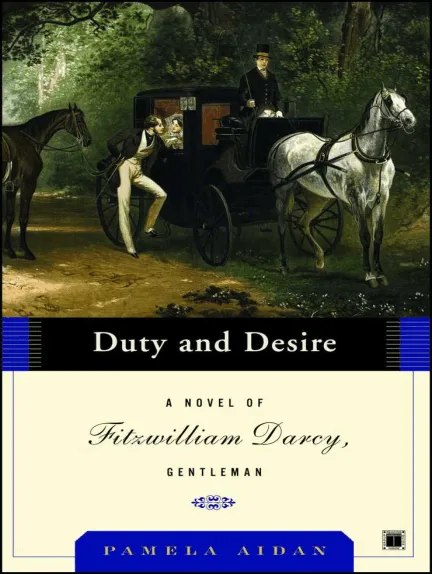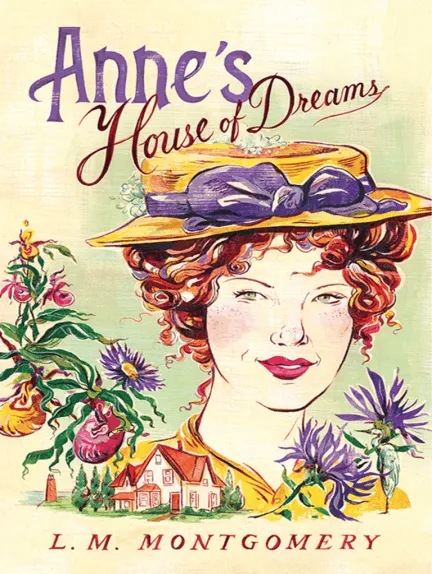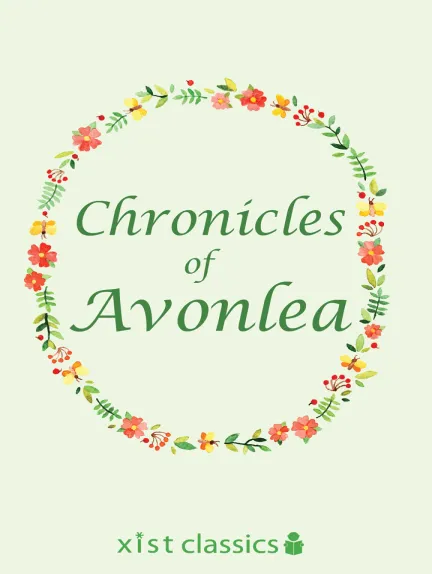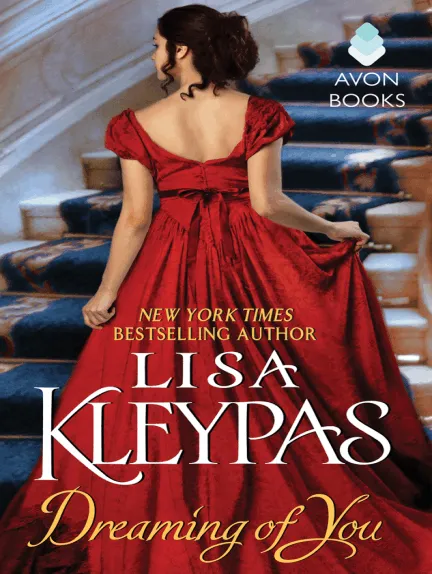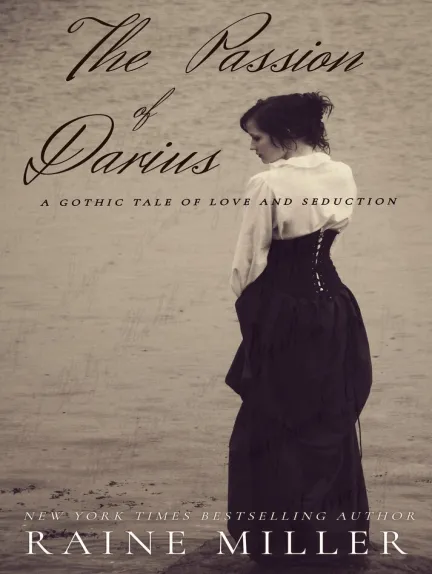I set off for Chawton in the third week of July, the day after the girls had left school for the summer holidays. On the journey I caught my first glimpse of Mr Stephenson’s famous locomotive, The Rocket, which was being tested on the new railway that an army of labourers were laying down between Manchester and Liverpool. The bitter smell of burning coal seeped in through the closed doors of the stagecoach and my stomach, already churning at the prospect of the quest that lay ahead, was turned to ice by the shrieking of the great engine as it flew past.
The thatched roofs and lush meadows of Hampshire belonged to a different world from the one I now inhabited: a world of slow, steady rhythms and old-fashioned ways. Stepping down from the coach to nothing but the sound of birdsong and the panting of horses, it was hard to believe that anything sinister could happen in such a place. I felt suddenly foolish. What was I thinking of, coming here with a hidden motive? Then I remembered something Anna had said on a hot May evening more than twenty years distant: If I had a husband like that I would poison him slowly… I reminded myself that she lived in this very county, the respectable wife of a parson with a brood of seven children now. Dark thoughts will grow in any soil, I thought.
It struck me that Anna was the only person I had ever heard utter such a thing. Why, then had I not thought of it before? The answer came swiftly, in Jane’s voice. Anna loved me. It was beyond doubt that Anna had adored her aunt. Jane had cared for her when she was small and had continued to be the most special woman in Anna’s life, more of a mother figure than Mary Austen had ever been. I could no more suspect Anna of poisoning her aunt than murdering one of her own children.
I started counting all the people I could think of who visited the cottage on a regular basis, and could, therefore, have had an opportunity to introduce arsenic into something Jane ate or drank. When I included all the family members and servants who had stayed at the Great House during the year before she died, the number exceeded thirty. I wondered how on earth I was going to investigate so many potential suspects, especially as I knew of no reason for any of them wanting Jane dead. Cass and Henry were the only beneficiaries of her Will and the amounts she left were trifling, despite the success of her books. Cass, I was certain, would rather have died herself than see any harm befall her sister. Henry was a different character altogether: I had seen his ruthless side at close quarters. He had lost his fortune, of course, but was he really capable of murdering his own sister for a little less than a curate’s yearly stipend?
Fanny and Anna never mentioned him in their letters now. Cass had given me the occasional bit of news. There had been talk of him taking up a chaplaincy at the British embassy in Berlin, then news of him moving instead to a parish in Colchester. ‘He and Eleanor have little in the way of material wealth but they seem very happy,’ Cass had written a year or so ago. She had made no mention of any baby being born to the couple. It appeared that Miss Jackson had brought Henry neither children nor money.
I heard my name called and looked up. Still, after all these years, I had a fleeting sense that the figure waving from the window was Jane. It was Cass, of course, and soon she was out of the door and coming along the path, hands outstretched in greeting. I saw that she was still dressed in black, like a widow in mourning. When she smiled at me I saw that she had lost two of her front teeth, just like her mother. As she led me back to the house I half-expected to see Mrs Austen bending over the cabbages in her boots and workman’s smock. I had to remind myself that, like Jane, she no longer walked this earth.
Jane’s face was the first thing that I sought when I entered the parlour. I noticed that there was something hanging on the wall beside it: a piece of writing in a gilt frame that matched the one containing her portrait. ‘What’s this?’ I asked Cass.
‘It’s a poem,’ she replied. ‘The very last thing that Jane composed. She dictated it to me two days before she died.’ She glanced away. ‘I’ve had it in a drawer for ages but I thought it ought to go on display.’
I took a few steps closer until I was able to make sense of the letters. ‘“When Winchester Races – a poem for St Swithin’s Day,”’ I read aloud.
‘She wrote it on St Swithin’s Day,’ Cass explained. ‘I don’t know why she chose that subject – it seems an odd thing to be thinking about when you’re….’ She bit her lip.
‘Would you mind if I copied it? I should like to be able to read it to myself sometimes, when I’m back at home.’
‘Of course I wouldn’t mind,’ she smiled. ‘You can do it now, if you like, while I make you some tea.’
She brought me paper and a pen and ink. I sat quite still for a moment, reading the poem through, with nothing but the ticking clock intruding on my thoughts. It was a strange poem about the saint taking revenge on the people of Winchester for having the nerve to hold their races on his holy day. I don’t know what I was hoping for: it was quite unlike anything else of hers that I had ever seen. There were six verses and every so often a word was underlined – presumably Jane had instructed Cass to do this – but the choice of emphasis seemed quite random. Nevertheless, I set to copying it.
‘Where is Martha?’ I asked when Cass returned with the tea.
‘Gone to Winchester,’ she replied. ‘She and Frank have to finalise the arrangements for the service. She’ll be home in time for dinner.’ A fragment of her voice broke away with those last few words and I asked her what the matter was. ‘Don’t mind me,’ she said, ‘It’s just foolishness. I’m as happy for Frank and Martha as anyone could be. It’s just that…’ she tailed off, picking at the lace on her collar.
‘Just that what?’
‘They’re getting married in the cathedral. Where…’ She didn’t need to finish the sentence. Now I understood. I had wrongly assumed that the wedding would take place at the village church.
‘Why did they choose it?’ I asked.
‘The Dean is a friend of Frank’s from his schooldays,’ she replied. ‘He married him the first time and took the funeral service for his poor wife. Frank says he would be offended if his wedding to Martha took place anywhere else.’ She looked away then, fishing in her pocket for a handkerchief. It grieved me to see her tears but I blinked back mine, afraid of upsetting her even more.
‘Do you talk to her, Cass?’ My voice sounded very loud in the little parlour.
She searched my face for a moment. ‘Yes, every day. Do you?’
I nodded. ‘I have the drawing you made hanging in my study, over the desk. I sit for ages, sometimes, just staring into her face, and after a while I hear her voice in my head. It seems so real to me; as if she’s standing right beside me.’
‘I get that too,’ Cass smiled. ‘It’s usually when I’m in the garden, though, not in the parlour. I don’t look at the portrait very often because it pains me to remember how she changed in those last months. Her face was so lovely, but it was ruined by her illness.’
I felt a prickle of apprehension. I wanted her to go on, to describe exactly what Jane’s face had looked like at the end, but now the opportunity had arisen I found I didn’t have the stomach for it. I stared at her stupidly, trying to think of something else to say.
‘It was horrible, what it did to her.’ Cass shook her head. I held my breath. ‘It was as if someone had taken a paintbrush to her face and dotted it all black and white. They say the state of our skin reflects the state of the internal organs, don’t they?’ She glanced at me and I gave a quick nod. ‘I suppose it was a manifestation of the disease inside her stomach. It was the same with my brother James, you know.’
This took me so much by surprise I could not frame a sensible response.
‘His face turned a horrible colour.’ She made a sound like green wood in a fire. ‘I remember going to visit him the week before he died. I hadn’t seen him for a while because Mama had been ill and I couldn’t get to Steventon. Martha was helping Mary to nurse him – she’d tried everything she could think of to make him well, but nothing worked – and she warned me not to be shocked when I saw him. I suppose she knew it would remind me of Jane. It did, of course. I knew then that he must be dying.’
The air inside the room seemed to have liquefied; the furniture was melting and changing shape. Had Cass really said what I thought she said? I opened and closed my mouth like a goldfish. ‘Was he…er, I mean… Did Mr. Lyford say what ailed him?’
‘He told Mary he couldn’t be certain what it was. He mentioned cancer of the bowel and he said there was probably a weakness of the digestive system in our family.’ She paused, frowning, and said: ‘Mama did not have it, though; she ate like a horse until the last week of her life and her skin was quite lovely when she died. I remember thinking it was as if the years had suddenly fallen away.’
I was nodding as she spoke, but my mind was racing ahead. Why had James displayed the same discoloration of the face as his sister? Could it be that both of them were poisoned? Or was Mr Lyford’s conclusion the correct one? Had Jane and her brother died of some mysterious digestive disorder not mentioned in the textbooks I had read? A condition that affected some members of Jane’s family but not others?
‘What about your father?’ I asked. ‘Did he have problems with his stomach?’
‘No,’ she replied. ‘He never had a day’s illness in his life: he was absolutely fine one day, then the next he collapsed. They said it was a stroke.’ She stared into the empty fireplace. ‘The only other person I’ve seen with a face like that was Elizabeth, but of course, she was only a relative by marriage.’
‘Elizabeth?’ I stared at her, incredulous. ‘Surely she died because of giving birth?’
‘Yes, she did,’ Cass replied. ‘It was ten days after poor little Brook-John was born. We all had dinner together and suddenly she fell to the floor, just writhing in agony, poor thing. And black patches appeared on her face, before our very eyes.’
Something swam up from the depths of my memory: a line in a letter Jane had written at the time of Elizabeth’s death: How does the corpse look? I remembered it because it had puzzled me greatly when she showed the letter to me. It dawned on me now that Cass must have mentioned the condition of Elizabeth’s face when she wrote to tell Jane of the tragic event at Godmersham. No doubt Jane, with a writer’s fascination, had been curious to know whether Elizabeth’s complexion had reverted to its beautiful, unblemished state after death.
This revelation of Cassandra’s, coming hard on the heels of the news about James, sent me into a flurry of speculation. What if Elizabeth had been poisoned too? Her death was exactly like the descriptions I had read of victims of a single, large dose of arsenic, where an apparently healthy person suffers a sudden, violent end. Could it be that one person had killed all three members of the Austen family? If so, what was the motive?
The first question to consider was who might benefit from this series of murders, if murders they were. Henry’s name sprang to mind once again: he had inherited money from Jane and a living from James. But surely he was the last person to have wanted Elizabeth dead? I considered it for a moment. What if Elizabeth had grown tired of all the subterfuge and deceit? What if she had wanted their relationship out in the open, with a divorce from Edward? How would Henry have reacted to that? His fortune was still intact at the time, but to incur Edward’s wrath would have been financial suicide: not only would Edward have pulled out as a major backer, he would have sued Henry for thousands of pounds in damages in the Criminal Conversation case that would surely follow. Men have murdered for far less, I thought.
The second question was one of opportunity. If my theory about Jane, James and Elizabeth was correct, the perpetrator must be someone who had access to the homes of all three. Henry was a regular visitor to Chawton, Steventon and Godmersham. He was not at Godmersham when Elizabeth died but he could have bribed one of the servants to put arsenic in that last meal. So many staff went in and out of that great kitchen that it would have been very difficult to pin the crime on any individual, even if poisoning had been suspected. And Henry had been a very rich man at that time: it wasn’t hard to imagine some footman or groom or scullery maid taking a risk like that for the kind of money he could offer.
The fact that Henry had arrived in Kent within twenty-four hours of Elizabeth’s death was in itself most unusual, given that he lived sixty miles away. This eagerness to attend a scene of death was a consistent feature of Henry’s behaviour: Mary had told me that he was the first member of the family to arrive at the house in College Street following Jane’s passing. He was actually residing at Steventon rectory when James died and had subsequently taken over the place with what many would consider indecent haste.
Once set on this path, my thoughts began to run away with me. What if there had been more to be gained from Jane’s death than a mere fifty pound legacy? What if he was creaming off the profits from the two novels published after her death, along with the profits from any new editions of her earlier books? Without Jane to keep a watchful eye on the accounts, there was no knowing what he might get away with. Cassandra was not the sort of person to question her brother about the money Jane’s estate yielded: no doubt she was grateful for whatever she received.
It was next to impossible to shake off these ideas. Cass asked if I would help her in the kitchen and though my body did her bidding my head was miles away. Hannah Pegg had gone to the Great House, where preparations for the wedding breakfast were being made, so Cass and I were soon up to our elbows in eggs and sugar, making dainty offerings to add to the feast. My task was to whisk twenty egg whites for thirty minutes and though my right arm ached with the effort, thoughts of Henry made me beat all the harder. I was gathering up all my memories of him, holding them up for inspection like fallen apples. Was he really capable of such heinous crimes? Could a man who sought out the prettiest, most expensive muslin for his sister also be capable of killing her for money? Could a man who cradled a baby in his arms and sang it to sleep think of murdering its mother?
‘Would you fetch me some vanilla pods?’ Cass’s voice broke into my thoughts. ‘They’re in the pantry, next to Martha’s wine.’
I glanced at the egg whites, which were stiff enough by now for a whole family of mice to run across. Laying down the whisk I set off down the passage that led to a little room that smelt of cheese and vinegar and smoked meat. I had no candle, so it took me a while to locate the jar containing the vanilla pods. The first thing I put my hand on turned out to be a draught for curing piles and the label on the second jar I scrutinised was a remedy for gout. Eventually I spotted what I sought on a low shelf bearing a row of demijohns. As I tucked it under my arm I heard the clatter of hooves through the wall. I wondered if it was the stagecoach pulling up outside the inn but as I made my way back towards the kitchen I heard a familiar voice.
‘Cass! Where are you?’ It was Henry. I froze in mid-stride. From the passageway I could see into the kitchen through the door, which I had left ajar.
‘In here!’ Cass called over her shoulder.
Henry strode into the room. I observed him in profile as he bent to kiss his sister then stuck his finger in the mixture she was stirring and licked it. ‘Mmm! Delicious! I wasn’t sure there’d be anyone at home: thought you might be up at the Great House. I’ll go and fetch Eleanor.’ With that he made a swift exit and I darted into the room with the vanilla.
‘Henry and his wife are here,’ Cass said when she saw me. ‘Would you mind taking these into the parlour while I make another pot of tea?’ She took gingerbread biscuits from an earthenware jar and arranged them on a plate. As she did so I glanced out of the window. There was a gig parked by the donkey shed and Henry was lifting a young woman out of it. She was pale and slight with wisps of blonde hair poking out from under a straw bonnet. He did not set her down, as I expected, but carried her all the way up the path that led round the side of the house. She had her arms around his neck and when I glimpsed her face I saw a look of adoration in her eyes. So this is Reverend Papillon’s niece, I thought. She did indeed look like an invalid, albeit a very young one. Henry looked like a father carrying his sick child.
I reached the parlour before them and set the plate of biscuits down on the table. Henry didn’t notice me at first. He was puffing slightly with exertion as he set his wife down on the sofa. He kissed her forehead, murmuring: ‘There you are my love. Do you feel quite well? I hope the journey hasn’t taxed your strength.’
‘I’m fine, my darling,’ she replied. ‘It isn’t far, really, is it? And I have a whole day to rest before we go to Winchester.’
Henry caught sight of me as he straightened up. ‘Good gracious! How you startled me!’ He gave his customary beam. At this distance I could see the march of the years in his face. There was a row of wrinkles across his forehead and fine lines either side of his mouth, noticeable only when he smiled. At seven-and-fifty he was still a handsome man and appeared not to have put on an ounce of extra weight.
‘Allow me to introduce my wife,’ he said. ‘Eleanor, this is Miss Sharp: she is an old friend of my sister Jane.’
I felt very old indeed as I held out my hand to her. I calculated that she must be in her mid-thirties, as Fanny and Anna now were, but with her tiny frame and delicate looks she could have passed for twenty.
Cass came in then with the tea. Henry said they wouldn’t stay above half an hour as he had to get Eleanor settled in the room they were to have at the Great House. I watched him with a cold fascination as he fussed over his wife, pouring milk into her tea and sugaring it for her; sweeping the crumbs off her lap when she took a piece of gingerbread. Was this how a poisoner behaved? Was this how he had lured Jane into swallowing arsenic? Could he really be so utterly callous?
From the look of the gig outside, Cass’s assessment of Henry’s financial status was quite accurate. In their dress he and Eleanor looked exactly as one would expect a country parson and his wife to look: there was none of the style and dash of London tailoring about them. The inescapable conclusion was that he had not married for money but for love. And what a tender, selfless kind of love it seemed to be, for Henry had known the state of Eleanor’s health when he wed her: Fanny’s letter had made that quite plain.
As I watched him carry her back to the gig I felt a mounting sense of shame at the direction my thoughts had taken. I glanced at Jane’s portrait on the wall. Henry is no murderer, is he? I asked the question with my eyes, not my tongue. For once, though, she was silent.
‘Miss Sharp?’
I wheeled round, startled by the sound of Henry’s voice.
‘I had to speak to you.’ He dropped his voice to a whisper. ‘I owe you an apology. I should have written to you long ago.’
So taken aback was I that no words came in response. I stood by Jane’s picture, as still and silent as the image in the frame.
‘I beg your pardon, I must be brief. Eleanor is waiting in the gig and she must not get cold.’ He glanced at the door, which he had left half open. ‘I wronged you in my other life; the life I led before. And for that I am truly sorry. I take comfort from what Cass tells me: that you have raised yourself far above the station you occupied in my brother’s house. But I ask your forgiveness, all the same.’ He looked as if he was waiting for me to give an absolution. When none came he said: ‘Like many people, I have searched for love in the wrong places. And God knows I’ve been punished for it. But out of despair has come the greatest joy: Eleanor is so much more than I deserve. She is the—’
‘Henry!’ Cass was calling from the kitchen. ‘Are you still here?’
With a quick bow he rushed out, closing the door on a swarm of unanswered questions. Was that a confession? Was he actually admitting to an affair with Elizabeth? He said he had searched for love in the wrong places. What did that mean, exactly? The words carried a horrible resonance. Was I not guilty of a similar offence? Searching does not mean finding.
Henry and Eleanor swept past the window in a smudge of colours on their way to the Great House. The man who had begged my forgiveness was so very different from the Machiavellian character I had clashed with at the White Hart. I wondered if the loss of all that material wealth had brought on a Damascene experience. Perhaps his decision to enter the church had been more than just a last-ditch solution to penury. Certainly he seemed to have changed for the better. His unsolicited expression of regret softened my heart to the extent that I crossed him off the list of potential suspects.

